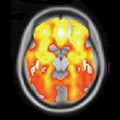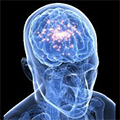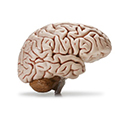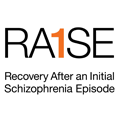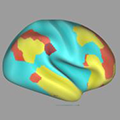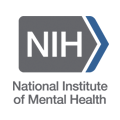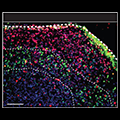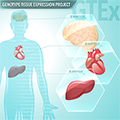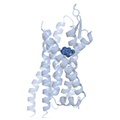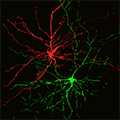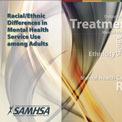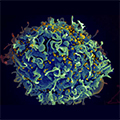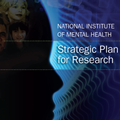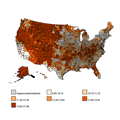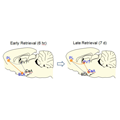Science Updates from 2015
- Biomarkers Outperform Symptoms in Parsing Psychosis Subgroups
-
Three biomarker-based categories, called “biotypes,” outperformed traditional diagnoses, such as schizophrenia and bipolar disorder with psychosis, in sorting psychosis cases into distinct subgroups on the basis of brain biology
- Biomarker for Brain Excitability May Help Track Medication Effect
-
NIMH scientists have recently discovered a link between order in the activity of neurons in the brain and excitability—how likely it is that individual neurons will “fire”— which may provide a means for monitoring treatment of conditions like epilepsy that would be less invasive and thus more versatile than current methods
- NIH-supported NeuroBioBank Joins Autism BrainNet in Brain Donation Initiative
-
Two of the world’s largest brain tissue banks unify efforts to collect and distribute a critical number of brain donations for important autism research.
- Combating Early Death in People with Serious Mental Illness
-
Recent articles in JAMA Psychiatry report and comment on the premature mortality seen among adults with schizophrenia; NIMH research is underway to reduce health risk factors in people with serious mental illness.
- Federal Agencies Partner to Promote Coordinated Services for Patients with First Episode Psychosis
-
On October 16, the Centers for Medicare and Medicaid Services announced support for a new treatment for first episode psychosis called coordinated specialty care (CSC). This decision means more clinics may be able to offer CSC and it may become more readily available.
- Twitter Chat on Sports-Related Head Injury and Cognitive Decline
-
Twitter chat on the symptoms, treatments, and research on sports-related head injury and cognitive decline.
- Antipsychotics Use Among Older Adults Increases with Age
-
Researchers find antipsychotic use among older adults increases with age despite known health risks. In 2010, more than 3/4 of seniors receiving an antipsychotic prescription had no documented clinical psychiatric diagnosis during the year. In addition, among those who did have a diagnosed mental disorder and/or dementia, nearly half of the oldest patients had dementia, regardless of FDA warnings that antipsychotics increase mortality in people with dementia.
- Team-based Treatment is Better for First Episode Psychosis
-
New research shows that a team-based, coordinated specialty care treatment plan produces better outcomes than typical community care for people with first episode psychosis. Investigators also found that treatment is most effective for people who receive care soon after psychotic symptoms begin.
- Blog, Video Spotlight NIMH Neuroscience Trainee
-
A recent NIH Director’s Blog and Lab TV video feature a young neuroscientist whose discoveries as a graduate student – about a key maternal behavior – were supported, in part, by a NIMH training grant.
- Webinar: Facts and Myths about RDoC
-
On October 13, 2015, the Research Domain Criteria (RDoC) Unit is hosting a webinar to answer the most frequently asked questions about the RDoC initiative.
- Twitter Chat on Pediatric Bipolar Disorder
-
Learn about the signs, symptoms, and treatments for pediatric bipolar disorder during a Twitter chat with NIMH expert Dr. Ken Towbin on October 8. #NIMHchats
- Our Brain’s Secrets to Success?
-
We owe our success -- both as a species and as individuals – to uniquely human brain wiring that is just now beginning to be understood, thanks to the BRAIN Initiative and the Human Connectome Project.
- National Suicide Prevention Month: Update 2015
-
In the year following the release of a Prioritized Research Agenda for Suicide Prevention by the National Action Alliance for Suicide Prevention’s Research Prioritization Task Force, NIMH has undertaken a series of initiatives aimed at reducing suicide rates within specific risk groups and settings. The goal is to identify through research the most effective strategies for preventing suicide, for the greatest number of people.
- RDoC Joins the Twitterverse
-
The National Institute of Mental Health (NIMH)’s Research Domain Criteria (RDoC) Unit has launched its official account on Twitter, @NIMH_RDoC.
- Embracing the SPIRIT of reducing suicide
-
NIMH, NIH, and the National Institute of Justice are collaborating on a 4-year, $6.8 million study called Suicide Prevention for at-Risk Individuals in Transition or “SPIRIT.” The study focuses on the high-risk individuals who are transitioning from jail to community. SPIRIT is NIMH’s first major investment in suicide prevention in the justice system.
- Psychosis Treatment Program Expands in New York
-
New York expanded OnTrackNY, a treatment program for youth with psychosis which is an offshoot of one of the two NIMH-funded Recovery After an Initial Schizophrenia Episode (RAISE) studies.
- Webinar Series – Office for Research on Disparities and Global Mental Health
-
View the archived webinars with NIMH experts and grantees, which focus on training, research, and methodology
- Attention-Control Video Game Curbs Combat Vets’ PTSD Symptoms
-
A video game that implicitly taught combat vets that threatening stimuli are irrelevant to performing their task reduced their PTSD symptoms.
- NIH Joins Public-Private Partnership to Fund Research on Autism Biomarkers
-
James McPartland, Ph.D. of Yale University will lead a new four-year $28 million Biomarkers Consortium project that aims to improve clinical evaluation of treatments for social impairment in children with autism.
- NIH Joins with Women’s Organization to Debut Postpartum Depression Video
-
A new video about postpartum depression marks the launch of a mental health education collaboration by two NIH Institutes and one of the nation’s largest African-American women’s organizations.
- Twitter Chat on Cancer and Psycho-Oncology
-
NIMH and NCI host a Twitter chat on how patients and caregivers, across all ages, can deal with the psychological impact of cancer.
- Boys More Likely to Have Antipsychotics Prescribed, Regardless of Age
-
Boys are more likely than girls to receive an antipsychotic prescription regardless of age, according to a new study published in JAMA Psychiatry.
- Study May Help Department of Veterans Affairs Find Patients with High Risk of Suicide
-
Scientists used health data to identify very small groups of VHA patients with very high, predicted suicide risk. Such methods can help the VHA to target suicide prevention efforts for patients at high risk, and may have more wide-ranging benefits.
- A Patient’s Budding Cortex -- in a Dish?
-
Scientists have perfected mini cultured 3-D structures that grow and function much like the outer mantle – the key working tissue, or cortex – of the brain of the person from whom they were derived.
- GTEx Findings Reveal New Insights into how DNA Differences Influence Gene Activity, Disease Susceptibility
-
Data resource begins to reveal how genetic variability influences key tissues in health and disease.
- The NIMH Research Domain Criteria
-
NIMH’s Research Domain Criteria (RDoC) is a groundbreaking initiative designed to help bring precision medicine to mental illnesses.
- Souped-up Remote Control Switches Behaviors On-and-off in Mice
-
Neuroscientists have perfected a chemical-genetic remote control for brain circuitry and behavior.
- Brain Circuitry for Positive vs Negative Memories Discovered in Mice
-
Neuroscientists have discovered brain circuitry for encoding positive and negative learned associations in mice.
- A New Look at Racial/Ethnic Differences in Mental Health Service Use Among Adults
-
New report on mental health service use among racial/ethnic groups
- Dr. Insel Reflects on Autism Awareness Month
-
Dr. Insel describes recent accomplishments related to autism spectrum disorder over the past year—from the reauthorization of the Interagency Autism Coordinating Committee to promising therapeutic results from clinical trials.
- HIV Can Spread Early, Evolve in Patients’ Brains
-
HIV can replicate independently and early in the illness process, genetically evolving differently than in the periphery.
- New NIMH Strategic Plan Aims to Focus, Accelerate Mental Health Research
-
New NIMH Strategic Plan balances the need for long-term investments in basic research with urgent mental health needs.
- NIH Announces Follow that Cell Challenge Finalists
-
NIH has selected 5 prize winners and 11 finalists in Phase 1 of its Follow that Cell Challenge, which aims to develop new ways to predict the behavior and function of a single cell in complex tissue over time.
- Lisanby Chosen to Lead NIMH Division of Translational Research
-
Dr. Sarah Hollingsworth Lisanby, one of the leading researchers in the area of neuromodulatory interventions for treating major depression, will join NIMH as the director of the Division of Translational Research.
- Pioneering NIMH Data Sharing
-
NIMH’s first major effort to share clinical trial research data—established before many current data registries existed—is still doing a brisk business.
- Disorders Share Risk Gene Pathways for Immune, Epigenetic Regulation
-
Risk genes for different mental disorders work through same pathways
- Webinar Series - Suicide Prevention: An Action Plan to Save Lives
-
Suicide Prevention: An Action Plan to Save Lives
